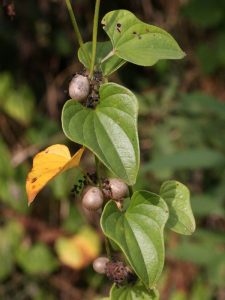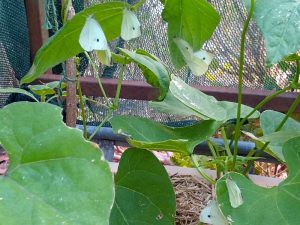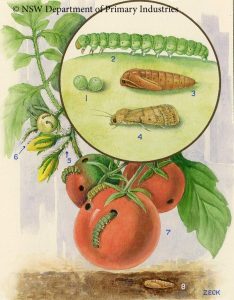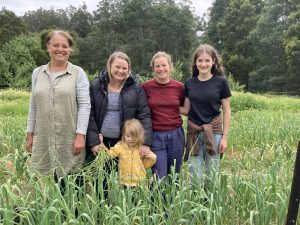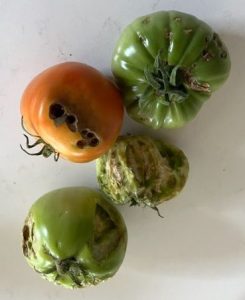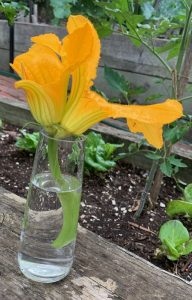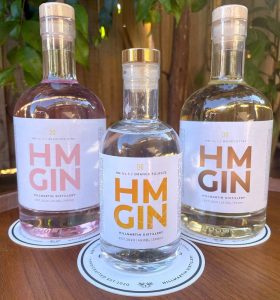Thanks to the people who have contributed to this week’s newsletter: Ann Stanley, Connor Mcallister, Holly Gallagher, Jennifer Chellew, Leanne Hall, Lucy Richards, Melissa Lawson and Melissa Murphy-Webster.
An interview with Rosemary (Rowe) Morrow
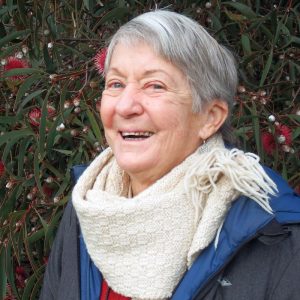 Ann Stanley has interviewed permaculturalist Rosemary (Rowe) Morrow about local food production, adapting to change in an unpredictable world, and honouring indigenous knowledge. Read the full interview on our website. I (Guy) have tried to summarise the interview below but it is difficult to do justice to it in a few words so I really do suggest that you read the full interview.
Ann Stanley has interviewed permaculturalist Rosemary (Rowe) Morrow about local food production, adapting to change in an unpredictable world, and honouring indigenous knowledge. Read the full interview on our website. I (Guy) have tried to summarise the interview below but it is difficult to do justice to it in a few words so I really do suggest that you read the full interview.
Rowe has recently re-written her book, The Earth Restorer’s Guide to Permaculture (originally published as The Earth User’s Guide to Permaculture), a work that shows us many of the ways that food can be produced locally, with a thorough discussion of the reasons why it should be. The updated version takes into consideration the changed world that we live in. Says Rowe, “in 1971, no-one was talking about megacities or about oceans, about refugee camps, pandemics and natural disasters. Since that time, whole villages in India have been lost because of glacial melting.“
Rowe has taught permaculture in refugee camps around the world and believes that “Refugee camps spread permaculture faster than anywhere else.“. From her point of view, a productive garden in a refugee camp is based on the same principles as an urban food garden on vacant land in an overcrowded and polluted city or food production in a suburban backyard. All should involve restorative practices in response to climate change and loss of biodiversity and often, especially in the case of displaced people, loss of community and identity. All should involve food production that maximises available water, soil, light and labour and all, ideally, should be infused with the permaculture ethics of ‘earth care, people care, fair share’.
For those of us lucky to live a more settled existence, Rowe says that “All the best work in sustainability around the world is being done at the local council level. It’s a local council-led movement. Cities are becoming cleaning and greener.” She recommends that each of us go about “seeing and naming” all the species of plant and animal in our own backyards because “you must know and love your ecosystem (not just individual plants) so that you can protect it.” On the subject of cities, Rowe speaks with enthusiasm about underground carparks that are turned into chicken homes, high rise buildings with worm farms and built-in water storage, and the possibility of whole urban communities living in vertical villages. She also believes that “Australia leads the way in regenerative agriculture“.
Want a copy of Rowe’s book?
Melliodora Publishing are offering a free copy of Rowe’s book, The Earth Restorer’s Guide to Permaculture, to a lucky newsletter reader. Closing date: 1st March.
If you don’t win the free book, you can still purchase a copy for $47.45.
A new local egg producer – Henley Farms
 Henley Farms, from Kangaroo Ground, produce organic-fed, pastured, free range eggs. The farm is Pastured Proof certified, which means that the chickens are raised outdoors with continuous and unrestricted daytime access to paddocks that are suitable for grazing and are provided with shade and shelter. Customised mobile caravans provide shelter, nest boxes and perches which are moved regularly to fresh pasture. They have a stocking density of just 150 birds per hectare. The chickens feed on Certified Organic feed that comes from Country Heritage Feeds. They listen to classical music as they lay eggs. Henley Farms do not use any chemicals, artificial fertilisers, antibiotics, hormones, fungicides, pesticides, herbicides or egg colour additives.
Henley Farms, from Kangaroo Ground, produce organic-fed, pastured, free range eggs. The farm is Pastured Proof certified, which means that the chickens are raised outdoors with continuous and unrestricted daytime access to paddocks that are suitable for grazing and are provided with shade and shelter. Customised mobile caravans provide shelter, nest boxes and perches which are moved regularly to fresh pasture. They have a stocking density of just 150 birds per hectare. The chickens feed on Certified Organic feed that comes from Country Heritage Feeds. They listen to classical music as they lay eggs. Henley Farms do not use any chemicals, artificial fertilisers, antibiotics, hormones, fungicides, pesticides, herbicides or egg colour additives.
You can buy their eggs online, either via once-off purchases or, at a 12% discount, by committing to a dozen eggs each week for 12 weeks. Or at the following shops: Dynamic Vegies, Eltham; Eltham Gourmet Poultry; North East Organics, Research; and Organic Fix, Eltham. They are also sometimes at Eltham Farmers’ Market.
It is noteworthy that all three of my local shops specialising in Certified Organic produce stock their eggs, namely: Dynamic Vegies, Eltham; North East Organics, Research; and Organic Fix, Eltham
Read Henley Farms’ page in our Local Food Directory. Welcome Venu!
Want to have your soil tested for free?
Through its new GardenSafe program, Environment Protection Authority (EPA) Victoria is offering free soil testing for a) soil quality (e.g. soil composition, organic carbon, soil nutrients, phosphorus and potassium) and b) trace elements (e.g. lead, arsenic and chromium). Read more. Register your participation. Thanks for the heads up, Jennifer Chellew!
Want some free sawdust?
Carpentry by Stu in Coburg North often have free sawdust to give away. $10 deposit to take a bag and bring it back. Generally the bags are 1½-2 wheelbarrows’ worth and a variety of timber. Only available sometimes so ring Connor Mcallister beforehand on 0435 784813. 69 Charles Street, Coburg North. Entry via Lens Street.
And the world’s most beautiful garden is …
 The results of the 16th annual International Garden Photographer of the Year (IGPOTY) have just been announced. There were several different categories. The winner of the ‘beautiful gardens’ category is pictured right.
The results of the 16th annual International Garden Photographer of the Year (IGPOTY) have just been announced. There were several different categories. The winner of the ‘beautiful gardens’ category is pictured right.
Newsletter reader tip
Melissa Murphy-Webster has written in to say that her experience is that cabbage white butterflies stay away from carnivorous plants. So, she now puts such plants near her most valuable veggies.
Thanks for the seeds
In our 30th November newsletter, we invited gardeners with excess seeds to send them in a Christmas card to one of a number of local not-for profit organisations, one of which was the Darebin Information, Volunteer & Resource Service (DIVRS) in Preston. Holly Gallagher, from DIVRS, has now written in to say thank you to everyone who contributed.
Which link was clicked most times in the last newsletter?
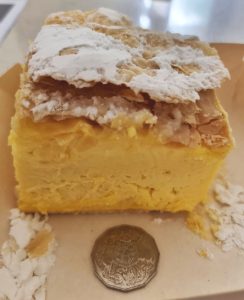 The most popular link in the last newsletter was again the article about the best vanilla slices in Melbourne.
The most popular link in the last newsletter was again the article about the best vanilla slices in Melbourne.
As there is obviously a lot of interest amongst our readership in vanilla slices, people might (or might not) be interested to know that the biggest vanilla slice that I have ever eaten was from Peppers Paddock General Store in Wattle Glen. See picture right, with the 50 cent coin providing scale. It was yum as well as big.
You might also be interested to know that The 2023 Great Australian Vanilla Slice Triumph will be taking place on 19th August at Merbein, which is near Mildura. According to their website, around 5,500 people attended the 2022 event, with around 20,000 vanilla slices being sold.
Would anyone like to tell us about any notable vanilla slices they have eaten? Email me.
 Joke (or pun) of the week
Joke (or pun) of the week
Submitted by Olaf Falafel: Don’t miss the last day of a wedding cake making course – it’ll end in tiers.
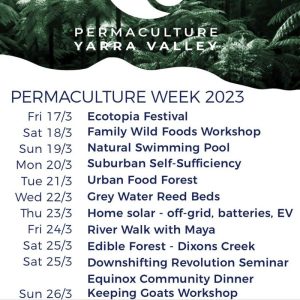 Not local but interesting
Not local but interesting
Ecotopia Festival; Friday, 17th March, 3.30-9pm; $15; Wesburn.
This annual event marks the start of permaculture week in the Yarra Valley. This year’s theme will be African culture and there will be African food tastings and cooking demos. The live music will include Mount Kujo, Kofi Kunkpe Music, Yarra Valley Drummers and Jayda Jean Music. There will be a variety of food stalls.
Stallholder applications are now open. If you would potentially like to have a stall, email them.
Yarra Valley permaculture week; Friday, 17th March to Sunday, 26th March.
There will be a variety of events in a variety of places over the week.
Regular activities over the coming week
Farmers’ markets
- Saturday: Coburg.
- Sunday: Alphington and Eltham.
Note that, when the Carlton Farmers’ Market re-starts in March, it will be on Saturdays rather than the previous Sundays.
Food swaps
- Saturday: Blackburn North, Brunswick East, Heidelberg, Hurstbridge and Preston/Thornbury.
- Sunday:Collingwood Yards and Eltham.
Community gardens
- Thursday: Diamond Valley Library (Greensborough), Edible Hub (Hurstbridge), SEEDs (Brunswick) and Whittlesea.
- Friday: Reynard Street (Coburg) and West Brunswick.
- Saturday: Links (Lalor), Macleod and Thrive (Diamond Creek).
- Sunday: Bellfield, Creed Farm (Epping), Fawkner Food Bowls, Pentridge (Coburg), Regent (Reservoir) and West Brunswick.
- Monday: SEEDs (Brunswick) and Whittlesea.
- Tuesday: Panton Hill and Watsonia Library.
- Next Wednesday: Bellfield, Eltham Neighbourhood House, Macleod, Newton Street (Reservoir), Span (Thornbury) and Sylvester Hive (Preston) .
Upcoming face-to-face events – not cooking
Heritage apple tasting; Sunday, 5th March, 5-7pm; $15; Templestowe.
Around 15 varieties will be available for tasting – mainly early/mid-season apples. An orchard tour is also included.
Cheese and beer masterclass; Thursday, 16th March, 7-9pm; $64 ($32 per hour); Abbotsford.
6 cheeses will be matched with 6 beers. Jointly hosted by Moon Dog Brewing and Cheese Culture.
CERES Harvest Festival; Saturday, 18th March, 10am-3pm; $10; CERES.
This is an annual event which includes live music, farm tours; workshops & talks, face painting and a scarecrow-building competition plus food and craft stalls.
Urban property garden tour; Tuesday, 21st March, 6-7.30pm; $5; Kilsyth.
The property features a solar system, multiple water tanks, a glasshouse, a seed saving box, a pond, a vegetable patch with wicking beds and fruit trees, chickens, beekeeping and a food forest.
Edible forest tour; Saturday, 25th March, 10am-midday; $15; Dixons Creek.
Go and have a guided tour of Edible Forest Yarra Valley Estate to see an acre of edible delights followed by an optional morning tea where you can have a drink and taste something harvested from the forest. The forest contains around 500 edible or medicinal plants.
Make a wicking bed; Saturday, 25th March, 10am-midday; $21 ($11 per hour); Hurstbridge.
This hands-on session will demonstrate the ins and outs of wicking beds. You will see how two different types of beds are constructed, and get a better understanding of wicking-bed design by helping to build the internal layers. The session will cover: the pros and cons of wicking beds; design principles and construction; commercial beds vs making your own out of re-purposed materials; planting out your beds; and soil management and maintenance over time.
Foundation to organic gardening course (2 sessions); Saturday 25th and Sunday 26th of March, 10am-2.30pm; $75 ($8 per hour); Richmond.
The course will cover: garden design – from raised beds to orchards; soil composition – get the dirt on dirt; propagating and seed sowing; four seasons planning; and composting systems to suit your needs. Organised by Richmond Community Learning Centre.
Organic vegetable gardening; Saturday, 15th April, 10am-3pm; $120 ($24 per hour); CERES.
What you will learn: how to get the most from your garden and have an abundance of vegetables, fruits and herbs; insights into seasonal produce growing; and the skills and knowledge to create an abundant and productive garden. Presenter: Donna Livermore.
Sustainable gardening (8 sessions); starting Tuesday, 18th April, 10am-2pm; $625 ($16 per hour); CERES.
This course will introduces you to the basics of horticulture, permaculture and organic gardening. The 8 sessions will cover: intro to sustainable gardening and permaculture principles; soils and their preparation; composting, worm farming and fertilisers; organic vegetable production; growing bushfoods and berries; seed saving and propagating; organic fruit production; and water management and guild planting. Presenters: Justin Calverley and Lizzie.
In February
- Bio Gro tour; Thursday, 23rd February, 9am-midday; free; Doncaster.
- Presenting the Merri-bek community food hub; Thursday, 23rd February, 6-8pm; $15; Coburg North.
- Learn to make wine (3 sessions); Saturdays, 25th February 9am-midday, 11th March 9-11am and 25th March 9-11am; $50 ($7 per hour); Eltham.
- Compost and worm farm workshop; Saturday, 25th February, 10am-midday; free; Brunswick.
- End of summer fruit tree pruning; Saturday, 25th February, 10am-1pm; $30 ($10 per hour); Forest Hill.
- Prevent and manage cancer with food; Saturday, 25th February, 11am-12.30pm; free; Eltham.
- The Prosecco Festival; Saturday, 25th February, 11am-8.30pm; $70; Abbotsford.
- Wicking beds workshop; Saturday, 25th February, 1.30-3.30pm; free; Kilsyth.
- Introduction to permaculture; Sunday, 26th February, 10am-midday; free; Coburg.
- Growing native edibles workshop; Monday, 27th February, 6.30-8pm; free; Richmond.
In March
- Complete urban farmer (14 sessions); weekly sessions starting Wednesday, 1st March, 9am-3pm; $895 ($11 per hour); CERES.
- Complete urban farmer (14 sessions); weekly sessions starting Thursday, 2nd March, 9am-3pm; $895 ($11 per hour); CERES.
- Whittlesea Garden Expo; Saturday, 4th March, 9am-3pm; $10; Whittlesea.
- Beginning beekeeping course; Saturday, 4th March, 9.30am-4pm; $252 ($39 per hour); Edendale.
- Weight management – a calorie density approach; Saturday, 4th March, midday-1.30pm; free; Eltham.
- Youth world food garden – fighting for a fair food system; Saturday, 4th March, 2-5pm; free; Preston.
- Whittlesea Garden Expo; Sunday, 5th March, 9am-3pm; $10; Whittlesea.
- Prevent and manage cancer with food; Sunday, 5th March, 11am-12.30pm; free; Fitzroy North.
- Heritage apple tasting; Sunday, 5th March, 5-7pm; $15; Templestowe.
- Introduction to horticultural permaculture (4 sessions); Every Tuesday for 4 weeks, starting 7th March, 10am-2.30pm; $60; Edendale.
- Worms are wonderful; Tuesday, 7th March, 1.30-2.30pm; free; Bayswater.
- Healthy eating and nutrition; Wednesday, 8th March, 2.30-3.30pm; free; Doncaster East.
- Penny Woodward on knowing, growing and curing garlic; Wednesday, 8th March, 8-10pm; free; Doncaster East.
- Basic inoculation workshop; Saturday, 11th March, 10am-midday; $87 ($44 per hour); Alphington.
- In-depth mushroom cultivation workshop; Sunday, 12th March, 10am-4pm; $165 ($28 per hour); Alphington.
- Mushroom growing 101; Wednesday, 15th March, 6.30-9.30pm; $160 ($53 per hour); Collingwood.
- Cheese and beer masterclass; Thursday, 16th March, 7-9pm; $64 ($32 per hour); Abbotsford.
- Mead making workshop; Saturday, 18th March, 9am-1pm; $100 ($25 per hour); Doncaster East.
- CERES Harvest Festival; Saturday, 18th March, 10am-3pm; $10; CERES.
- Open Farm Day; Saturday, 18th March, 10am-4pm; free; Edendale.
- The Herb and Chilli Festival; Saturday, 18th March, 10am-5pm; $27; Wandin.
- Introduction to permaculture (2 sessions); Sundays, 19th and 26th March, 10am-3pm; $120 ($10 per hour); Coburg.
- The Herb and Chilli Festival; Sunday, 19th March, 10am-5pm; $27; Wandin.
- Urban property garden tour; Tuesday, 21st March, 6-7.30pm; $5; Kilsyth.
- Food and mood (age group 50-64) (2 sessions); Tuesdays, 21st and 28th March, both 10.30am-1pm; $20 ($5 per hour); Fawkner.
- Bio Gro tour; Thursday, 23rd March, 9am-midday; free; Doncaster.
- Kevin Heinze GROW Autumn Fair (Coburg); Saturday, 25th March, 9am-3pm; free; Coburg.
- Kevin Heinze GROW Autumn Fair (Doncaster); Saturday, 25th March, 9am-3pm; free; Coburg.
- Edible forest tour; Saturday, 25th March, 10am-midday; $15; Dixons Creek.
- Make a wicking bed; Saturday, 25th March, 10am-midday; $21 ($11 per hour); Hurstbridge.
- DIY mushrooms; Saturday, 25th March, 10am-4pm; $175 ($29 per hour); CERES.
- Foundation to organic gardening course (2 sessions); Saturday 25th and Sunday 26th of March, 10am-2.30pm; $75 ($8 per hour); Richmond.
- Tea and chocolate pairing experience; Sunday, 26th March, 2-3.15pm; $75 ($60 per hour); Brunswick.
- Ricotta festival; Sunday, 26th March, 10am-4pm; $8; Thomastown.
- Bio Gro tour; Thursday, 30th March, 9am-midday; free; Doncaster.
- Growing herbs for health; Thursday, 30th March, 7-8pm; free; Thomastown.
In April
- Preparing your winter harvest; Saturday, 1st April, 9.30-11.30am; free; Kilsyth.
- Australian Distillers Festival; Saturday, 1st April, midday-7pm; $70; Abbotsford.
- Setting up a worm farm; Saturday, 1st April, 2-3.30pm; free; Edendale.
- Youth world food garden – taking charge of what we eat; Saturday, 1st April, 2-5pm; free; Preston.
- Introduction to growing microgreens; Sunday, 2nd April, 10am-midday; $80 ($40 per hour); Preston.
- Edible weeds; Sunday, 2nd April, 10am-midday; $60 ($30 per hour); Brunswick East.
- Beekeeping practical hands on – intermediate class; Saturday, 8th April, 10am-4pm; $252 ($42 per hour); Edendale.
- Seila Hierk on Asian winter vegetables; Wednesday, 12th April, 8-10pm;
free; Doncaster East.
Regular events
- Beekeeping workshop; roughly once a month on Saturdays, 1-3.30pm; $85 ($34 per hour); Brunswick East.
- Carlton aperitvio food tour; every Fridays, 5-7pm; $139 ($70 per hour); Carlton.
- Eltham trials (walking food tour); various Saturday mornings and Thursday evenings; $65 ($22 per hour); Eltham.
- Flavours of Coburg food tour; 3rd Saturday of each month, 10am-1pm; $65 ($22 per hour); Coburg.
- Gin making masterclass; most Saturdays, 10am-1pm; $175 ($58 per hour); Nunawading.
- Ratio Cocoa Roasters behind the scenes chocolate factory tour; various Fridays and Saturdays; $20 ($14 per hour); Brunswick.
- Spoon carving workshop; various Saturdays and Sundays, 10am-1pm; $130 ($43 per hour); Coburg North.
- Truffle workshop at Ratio Cocoa Roasters; 3rd Sunday of each month, 11am-1pm; $75 ($38 per hour); Brunswick.
Upcoming face-to-face events – cooking
Nutrition and cooking (8 sessions); on Saturdays, starting 25th February, 9.30am-midday; $87 ($4 per hour); Preston.
You will explore nutritional theory, healthy eating concepts and gain hands-on culinary skills. You will learn about the nutrients specific to each food group and their benefits, including how energy is balanced to maintain a healthy weight. The course will also cover how to decipher labelling on food packaging to build a healthy meal plan on a budget. The sessions will be led by a certified nutritionist. Organised by Bridge Darebin.
Turkish cooking class; Sunday, 19th March, 2-4.30pm; free; Reservoir.
Join Arzu for this cooking and cultural discussion workshop. Learn how to make lentil soup, kisir, Turkish borek and baklava. Organised by Friends of Regent Community Garden.
Aheda’s Palestinian feast; Saturday, 25th March, 6-10pm; $65 ($60 per hour); Brunswick.
Chef Aheda will prepare a Palestinian feast. The night will provide the chance for deep connection, story telling, listening and sharing a meal.
Kids school holiday cooking program; Thursday, 13th April, 10am-midday; $40 ($20 per hour); Hawthorn.
Put the fun back into food. This class will introduce Middle Eastern flavours and teach easy and exciting recipes. Organised by Hawthorn Community House.
Gnocchi making class; Sunday, 16th April, 10am-1pm; $140 ($47 per hour); Thomastown.
What you will learn: how to make fluffy potato gnocchi with a four cheese sauce; and how to make easy ricotta gnocchi with a cavolo nero pesto. What you will get: Italian style lunch and drinks; and a That’s Amore apron to take home. Host: Pia Gava. Organised by That’s Amore Cheese.
Indonesian food experience; Tuesday, 18th April, 10.30am-1pm; $40 ($16 per hour); Yarra Glen.
Tina Vankooten will demonstrate how to prepare and cook a number of Indonesian dishes including: Indonesian spring roll; chicken satay & peanut sauce; beef rendang; and curry laksa. Organised by Yarra Glen Living & Learning Centre.
In February
- Indian cooking – Punjabi (2 sessions); Wednesday, 22nd February and Wednesday, 1st March, both 6.30-8.30pm; $118 ($30 per hour); Panton Hill.
- Truffle and praline workshop; Tuesday, 23rd February, 6-10pm; $180 ($45 per hour); Blackburn.
- Mediterranean summer cooking; Thursday, 23rd February, 6.30-8.30pm; $65 ($33 per hour); Balwyn North.
- How to make fresh gnocchi; Thursday, 23rd February, 6.30-8.30pm; $36 ($18 per hour); Lower Templestowe.
- Farmhouse sake / doburoku night; Friday, 24th February, 6.30-8.30pm; $125 ($63 per hour); Fitzroy North.
- Nutrition and cooking (8 sessions); on Saturdays, starting 25th February, 9.30am-midday; $87 ($4 per hour); Preston.
- Sourdough bread making; Saturday, 25th February, 10am-12.30pm; $64 ($26 per hour); Lower Templestowe.
- Growing and cooking with bushfoods; Saturday, 25th February, 10am-3pm; $120 ($24 per hour); CERES.
- Kombucha workshop; Saturday, 25th February, 11am -midday; free; Ringwood.
- I want you to love tofu too; Sunday, 26th February, 10am-2pm; $160 ($40 per hour); Panton Hill.
- Beginners cheese making at home; Sunday, 26th February, 10am-3pm; $240 ($48 per hour); CERES.
- Lunchbox makeover (thermomix); Monday, 27th February, 7-9pm; $40 ($20 per hour); Blackburn North.
- Flavours of Middle Eastern cooking; Tuesday, 28th February, 6-9pm; $65 ($22 per hour); Hawthorn.
In March
- French patisserie – macarons; Wednesday, 1st March, 6.30-8.30pm; $80 ($40 per hour); Lower Templestowe.
- Sour pickle M.O.B.; Friday, 3rd March, 6.30-8.30pm; $95 ($48 per hour); Fitzroy North.
- Food preservation techniques; Saturday, 4th March, 10am-12.30pm; free; Wollert.
- Make a sourdough loaf; Saturday, 4th March, 10am-1pm; $50 ($17 per hour); Hurstbridge.
- Filled pasta with Piera; Saturday, 4th March, 10am-1pm; $140 ($47 per hour); Thomastown.
- Passata making day; Saturday, 4th March, 10am-1.30pm; $100 ($29 per hour); Bundoora.
- Food for mind and gut; Saturday, 4th March, 10am-2.30pm; $120 ($27 per hour); CERES.
- FFS … ferment four staples; Saturday, 4th March, 1-5pm; $365 ($91 per hour); Fitzroy North.
- Vegan cooking Italian style; Sunday, 5th March, 10am-3pm; $120 ($24 per hour); CERES.
- Middle Eastern cooking; Thursday, 9th March, 6.30-9.30pm; $65 ($22 per hour); Balwyn North.
- Home made miso M.O.B.; Friday, 10th March, 6.30-8.30pm; $145 ($73 per hour); Fitzroy North.
- Advanced sourdough bread; Saturday, 11th March, 10am-12.30pm; $80 ($32 per hour); Park Orchards.
- Passata making day; Saturday, 11th March, 10am-1pm; $90 ($30 per hour); Mount Evelyn.
- Sourdough hot cross buns and spicy kvass; Sunday, 12th March, 11am-2pm; $270 ($90 per hour); Fitzroy North.
- Sweet treats; Sunday, 12th March, 6-10pm;$165 ($41 per hour); Bundoora.
- Making the sugo at Mister Bianco; Tuesday, 14th March, 6.30-9.30pm; $169 ($56 per hour); Kew.
- Recipes to reduce food waste; Wednesday, 15th March, 10-11.30am; free; Ringwood.
- Laksa lemak; Friday, 17th March, 5-8pm; $85 ($28 per hour); Panton Hill.
- Making jams, preserving fruit, chutneys and pickles workshop; Saturday, 18th March, 10am-1pm; $165 ($55 per hour); Mount Evelyn.
- French patisserie – fraisier; Saturday, 18th March, 10am-2pm; $135 ($34 per hour); Lower Templestowe.
- Sourdough bread baking; Sunday, 19th March, 9am-5pm; $190 ($24 per hour); CERES.
- Tomato passata making workshop; Sunday, 19th March, 10am-1pm; $20 ($7 per hour); Watsonia.
- Turkish cooking class; Sunday, 19th March, 2-4.30pm; free; Reservoir.
- Vietnamese egg roll – cooking class; Tuesday, 21st March, 10-11.30am; $28 ($19 per hour); Doncaster East.
- Gozleme and baklava workshop; Tuesday, 21st March, 6.30-8.30pm; $65 ($33 per hour); Balwyn North.
- Indian cookery demonstration; Thursday, 23rd March, 6.30-8pm; free; Watsonia.
- Dumpling making workshop; Friday, 24th March, 6-8.30pm; $75 ($30 per hour); Park Orchards.
- Making jams, chutneys and pickles workshop; Saturday, 25th March, 10am-1pm; $165 ($55 per hour); Mount Evelyn.
- Veggies in desserts; Saturday, 25th March, 10am-3pm; $120 ($24 per hour); CERES.
- Aheda’s Palestinian feast; Saturday, 25th March, 6-10pm; $65 ($60 per hour); Brunswick.
- The art of Thai salads; Sunday, 26th March, 10am-2pm; $160 ($40 per hour); Panton Hill.
- Authentic Mexican; Sunday, 26th March, 10am-3pm; $120 ($24 per hour); CERES.
- Hot cross buns; Tuesday, 28th March, 6-9pm; $65 ($22 per hour); Hawthorn.
- Ladies day in the kitchen; Thursday, 30th March, 9.30am-midday; $35 ($14 per hour); Yarra Glen.
In April
- Kitchen basics; Saturday, 1st April, 10am-1pm; $165 ($55 per hour); Mount Evelyn.
- Sausage making with Frank; Sunday, 2nd April, 10am-1pm; $165 ($55 per hour); Mount Evelyn.
- Cake decorating using coloured fondants; Sunday, 2nd April, 1-5pm; $99 ($25 per hour); Surrey Hills.
- Men in the kitchen; Tuesday, 4th April, 6.30-9pm; $35 ($14 per hour); Yarra Glen.
Regular classes
- Artisan bread making; various Sundays, 8am-2pm; $230 ($38 per hour); Abbotsford.
- BBQ classes; various days and times; $135-150 ($45-50 per hour); Brunswick East.
- Beginners bread making; various Sundays, 8am-2pm; $230 ($38 per hour); Abbotsford.
- Chocolate making classes for children; various days and times; various costs; Yarra Glen.
- Chocolate making workshop; various Thursdays, Fridays and Saturdays; $152 ($38 per hour); Blackburn.
- Chocolate making workshop; various Saturdays and Sundays; $125 ($63 per hour); Box Hill North.
- Kombucha brewing workshop; last Thursday of each month, 7-11pm; $49 ($12 per hour); Brunswick.
- La Cucina di Sandra (Italian); various evenings, 6.30-10.30pm; $120 ($30 per hour); Richmond.
- Nonna & Mum’s cooking class; 4th Thursday of each month, 7-10pm; $24 ($8 per hour); Thornbury.
- Otao Kitchen (many different classes); various dates, times and prices but mostly 3 hours long and $197; Abbotsford.
- Rosa’s cooking classes; various Saturdays and Sundays, 10.15am-3pm; mostly $165 ($35 per hour); Bundoora.
- Tea blending; various Sundays; $75 ($60 per hour); Brunswick.
- The ultimate biscuit class; various Tuesdays, 10am-3pm; $162 ($32 per hour); Blackburn.
- Wild fermentation class and edible forest tour; 1st Saturday of each month, 10am-1pm; $85 ($28 per hour); Dixons Creek.

